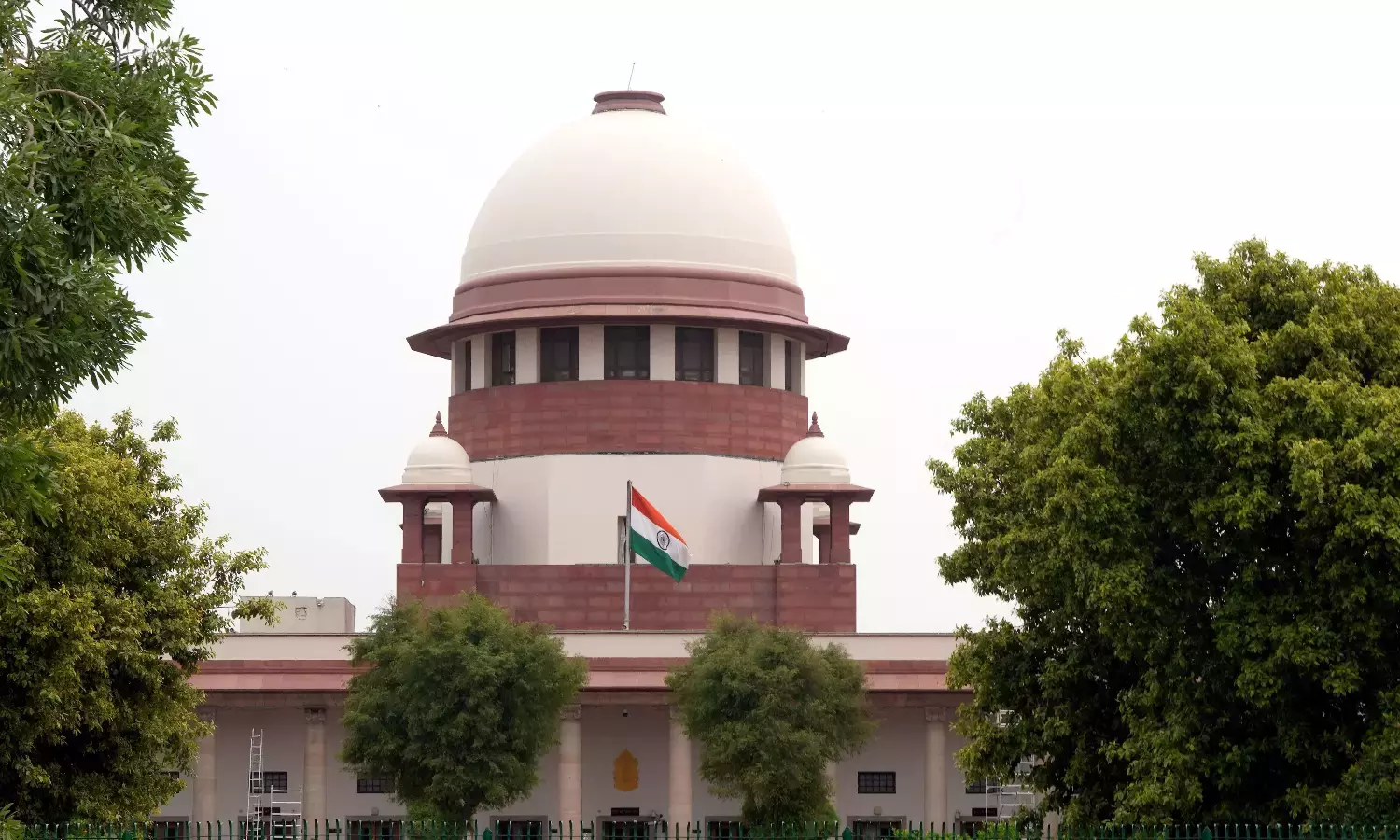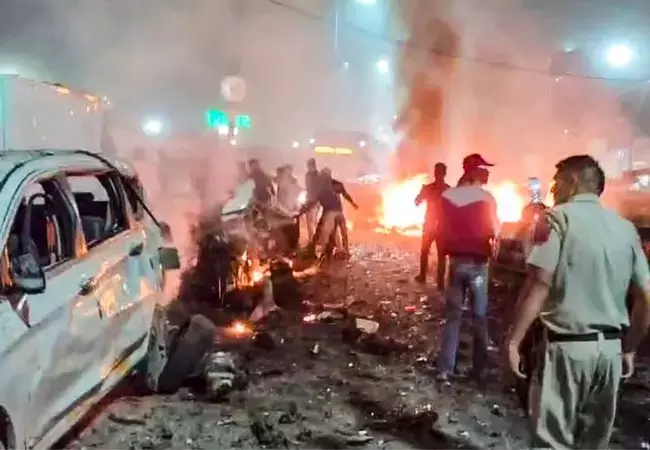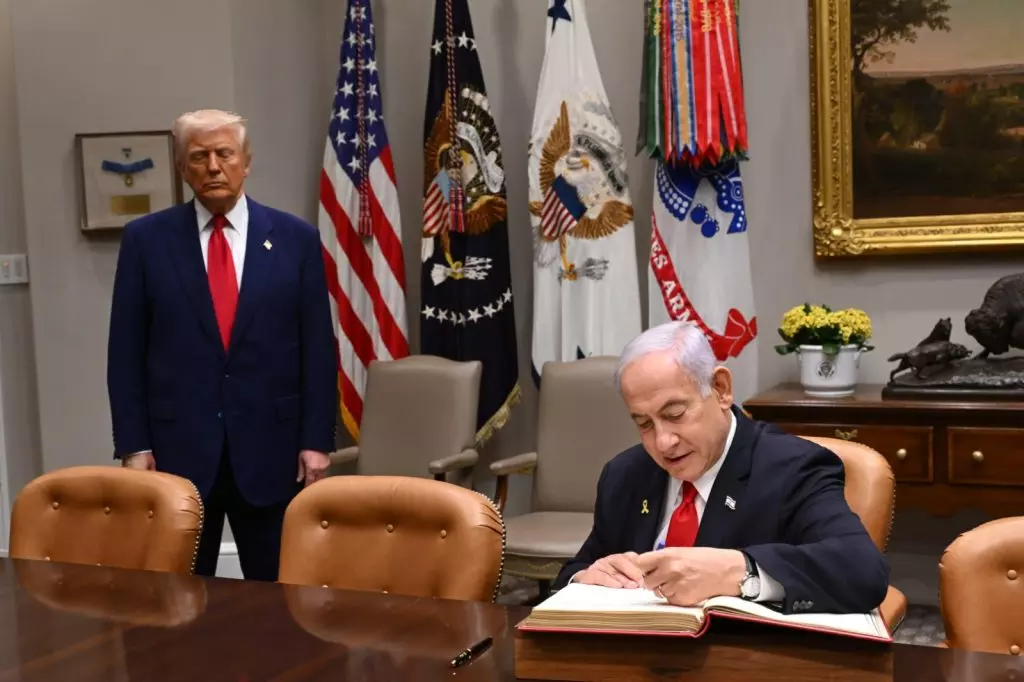
Trump evacuated staff a day before Israel’s strike on Iran, Iran warns of harsh payback
text_fieldsIsrael’s sudden strikes targeting Iran’s nuclear facilities, which killed several top Iranian military leaders including the head of the Revolutionary Guard and the chief of staff of Iran’s armed forces, can, according to war experts, be seen as a well-planned operation carried out with the connivance of the US, which had evacuated many of its staff from the Gulf region a day before and soon after the UN agency declared that Iran had violated nuclear enrichment rules.
The strikes come amid the passage of a UN General Assembly resolution calling for an immediate ceasefire in Gaza, which was backed by 149 Member States, with 12 voting against and 19 abstaining, though it carries no legally binding force.
The Israel Defence Forces (IDF) stated that over 200 fighter jets had participated in the offensive, which struck dozens of military and nuclear-related targets across Iran, including key enrichment and missile facilities.
The coordinated strikes reportedly killed several top Iranian military leaders, including the head of the Revolutionary Guard, the chief of staff of Iran’s armed forces, and the commander of the Khatam al-Anbia joint forces headquarters, with Iranian state media also confirming the deaths of two prominent nuclear scientists.
Iran, describing the assault as a grave act of aggression, vowed to deliver a harsh and decisive response while holding both Israel and the United States responsible for the attack. While Washington denied any direct involvement in the operation, it reiterated its commitment to safeguarding American forces and interests in the region, stating that it had not authorised the strikes nor encouraged them. However, Iran accused the United States of complicity, citing intelligence cooperation and longstanding support for Israeli defence operations.
As the situation rapidly deteriorated, Iran suspended its participation in the sixth round of nuclear talks with the United States, which were scheduled to be held in Oman, and Iranian officials stressed that diplomatic engagement could not proceed under conditions of military aggression.
According to Israeli military officials, the targets included Natanz, Iran’s primary enrichment facility, as well as missile production sites and nuclear research installations across the country.
The International Atomic Energy Agency (IAEA) confirmed that despite the intensity of the Israeli airstrikes, Iran’s nuclear facilities at Isfahan and Natanz remained structurally intact, and there had been no reported increase in radiation levels. The agency noted that contacts with Iranian authorities were ongoing and reiterated the importance of safeguarding nuclear installations from military conflict.
Global reaction to the Israeli strikes was swift and pointed, with countries across the Middle East, Europe, and the Asia-Pacific region expressing alarm at the military escalation. Saudi Arabia, Qatar, and the United Arab Emirates condemned the Israeli operation, warning that it undermined regional sovereignty and violated international law, while urging restraint from all parties to avoid a wider war.
Oman, which had been hosting mediation talks between Iran and the US, described the attack as a reckless and dangerous provocation that threatened regional peace and undermined the prospects for diplomatic resolution.
France, which was not informed in advance of the Israeli operation, expressed dismay at being excluded from the intelligence loop and said the development would have serious implications for France’s role in the Middle East peace process. Israel’s ambassador to France acknowledged the diplomatic rift, stating that the relationship between the two nations was no longer close enough to justify prior consultation.
In the United Kingdom, Prime Minister Keir Starmer labelled the Israeli airstrikes as deeply concerning and urged both Israel and Iran to de-escalate, while Australia called for all parties to avoid inflammatory rhetoric and prioritise diplomacy over conflict. Japan stressed the need to protect its citizens and announced that it would continue diplomatic efforts to prevent further deterioration, whereas New Zealand warned of the high risk of miscalculation and the potential for a broader conflict.
The United Nations condemned the escalation and voiced particular concern over attacks on nuclear sites while sensitive diplomatic negotiations were underway, calling on both Israel and Iran to exercise maximum restraint. The UN’s stance was echoed by various governments who fear that any further escalation could spiral into a prolonged and unpredictable regional war.
As the situation continues to unfold, Iran has begun consultations at the highest levels to determine its retaliatory strategy, while its armed forces confirmed the interception of more than 100 drones by Israel, launched by Iran in a counter-operation. Despite heavy damage to military installations, Iran’s government maintained that its core nuclear sites remained operational and insisted that the strikes had only strengthened its resolve to pursue nuclear enrichment and missile development as a national right.
Meanwhile, Israel indicated that its operation, codenamed “Rising Lion,” would extend over several days and involve further strikes aimed at deterring future Iranian advances. Israeli officials justified the offensive as a decisive moment intended to reverse what they saw as a growing threat to the country’s survival, especially as Iran’s nuclear infrastructure had reportedly reached a stage where weaponisation could not be ruled out.
























